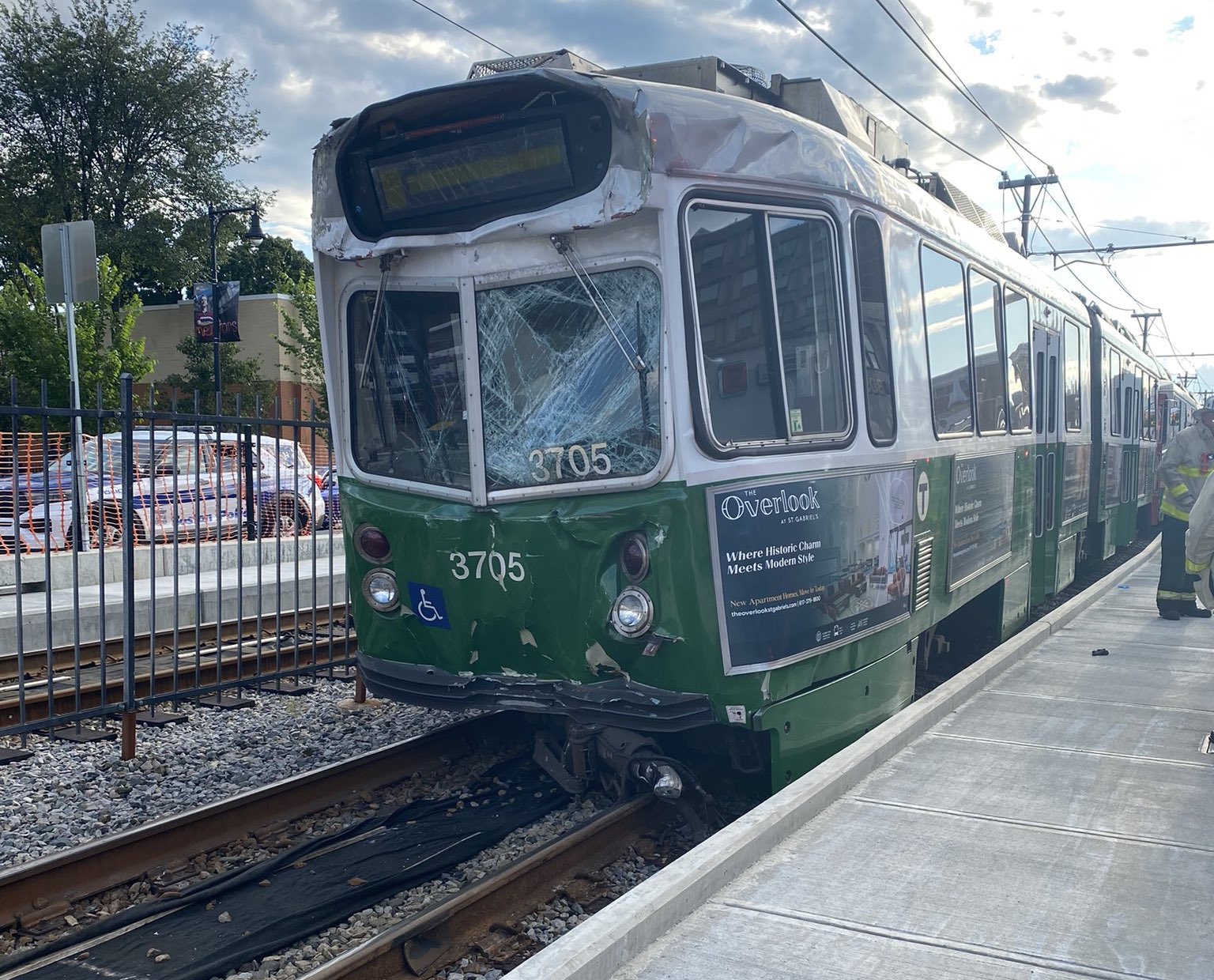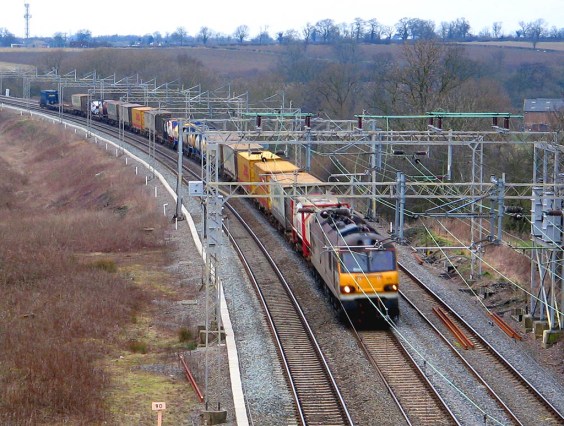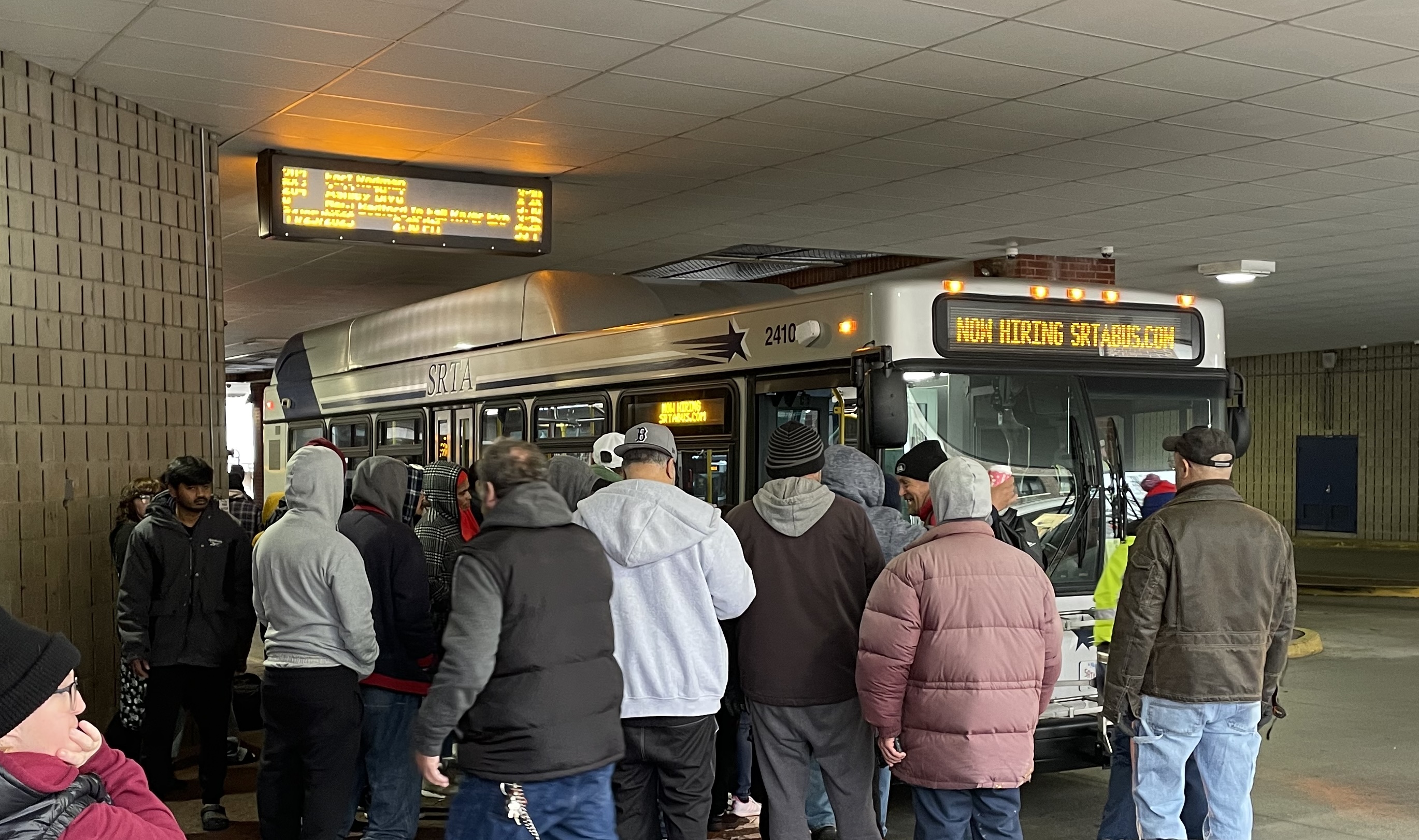An “extremely concerned" federal agency will increase its oversight over the the T, and advocates worry that the move could severely constrain the T's ability to plan for its future.
"The potential is basically a federal takeover where suits from D.C. basically come in to run the place," warns Brian Kane, the Executive Director of the MBTA's Advisory Board, which represents officials from the 176 cities and towns in the MBTA service area.
In a letter dated April 14, the Federal Transit Administration's Chief Safety Officer Office of Transit Safety and Oversight, Joe DeLorenzo, wrote to MBTA General Manager Steve Poftak to inform him that "The Federal Transit Administration (FTA) is extremely concerned with the ongoing safety issues at the Massachusetts Bay Transportation Authority (MBTA)."
"FTA leadership recently discussed the pattern of safety incidents with MBTA executive leadership, yet it remains unclear what actions the MBTA Board and executive team are implementing to prevent and address the system's safety violations," the letter continued.
DeLorenzo's letter was delivered about a week after Robinson Lalin, a Red Line rider, died after getting trapped in a subway door and dragged along the platform at Broadway station.
The FTA's letter also notes a pattern of "derailments, train collisions, grade crossing fatalities, and incidents that have endangered both MBTA employees and its passengers."
DeLorenzo's letter also informed the T that the federal government will soon initiate a detailed "Safety Management Inspection" of the T's maintenance and operations programs.
Letter withheld from the public
The letter from the FTA was delivered via email to MBTA General Manager Steve Poftak nearly a month ago, on April 14, and copies were also sent to Jamey Tesler, Secretary of MassDOT, and to Betsy Taylor, Chair of the MBTA Board of Directors.
However, at the MBTA's April 28 board meeting, there was no discussion of the letter, and its contents weren't made public until Boston Globe reporter Taylor Dolven obtained a copy and wrote about its contents in a May 9 report.
"We don't actually know what this really means for the agency, in part because Poftak and Taylor did not disclose this to the public," said Stacy Thompson, Executive Director of the LivableStreets Alliance, in a phone call with StreetsblogMASS on Tuesday afternoon (disclosure: Thompson also serves on the StreetsblogMASS Board of Directors).
For Jarred Johnson, Executive Director of TransitMatters, the fact that it took nearly a month for the FTA's letter to come to light represents "a bigger issue of transparency" for the T's management and its new board of directors.
"Just because we're not having two or three board meetings a month (as the former governing board did) doesn't mean that the public doesn't have a right to know about major developments like these," Johnson told StreetsblogMASS.
StreetsblogMASS has reached out on Tuesday afternoon to other MBTA board members in an attempt to learn if or when they learned of the FTA's letter. So far, none have responded.
Cautionary lessons from Metro
The FTA initiated a similar Safety Management Inspection over the Metro system in Washington, D.C. in 2015, after a fire filled L'Enfant Plaza station with smoke that killed one rider and injured dozens of other riders. That inspection resulted in a detailed "corrective action plan" that forced Washington's transit agency to implement 78 specific actions with work plans to address each action subject to approval by the FTA.
The action plan forced Metro to focus on the FTA's workplan to the exclusion of other service improvements for riders, says Kane of the MBTA Advisory Board.
"I can foresee a situation where the MBTA board becomes almost exclusively focused on safety initiatives and the budget," Kane told StreetsblogMASS on Tuesday evening. "That would mean goodbye to low-income fares; it could mean massive service cuts... We in New England don't like it when the feds tell us what to do, and I can see this person just taking very politically unpopular decisions to kind of right the ship. And that is potentially kind of scary - lots of things that lots of us have looked for and care about would potentially be jettisoned."
"I do think that if the FTA comes in and says, here are 100 things you have to do on this timeline, and the T has to shift capacity to deal with those issues that are urgent, it could impact things like bus network redesign and fare equity work," said Thompson. "We could end up cutting services or not moving forward things that we really care about. This should be a huge wake-up call and I want to know what the Governor is going to do about it."






